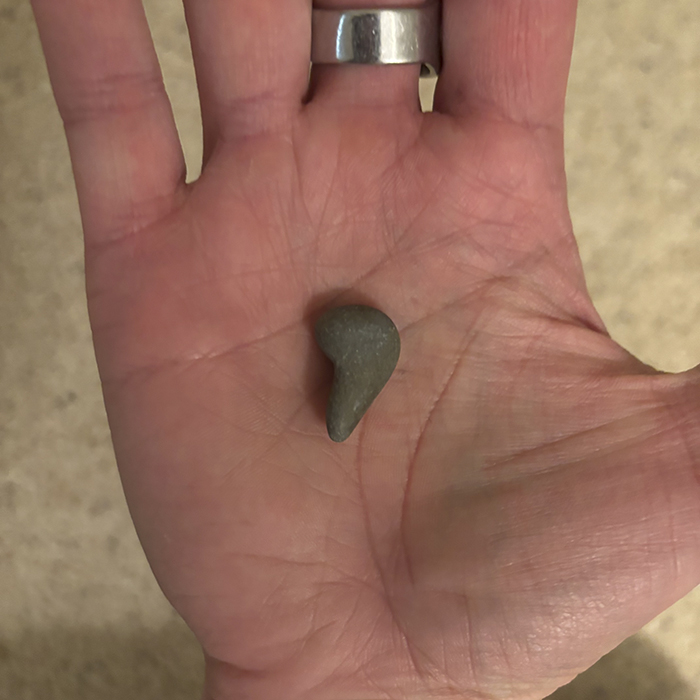
There are two certainties in life, and it ain’t death and taxes.
1. Horrifically stubbing your toe
2. Apostrophe abuse
Of all the linguistic criminals I see in the wild, none is more prolific than the apostrophe – in the wrong spot in words, there when it shouldn’t be, or missing when it should.
Most people don’t notice, which explains why these mistakes wind up on gargantuan billboards and in $7-million Super Bowl ads. They are made by leaders of countries and companies, by professional writers and designers, even by educators who are supposed to teach us what not to do.
Does it matter? No! Is it fun to care anyway? Oh yes. So fun that there is an organized group devoted to righting apostrophe-related wrongs.
The Apostrophe Protection Society (APS) was born in 2001, the work of retired newspaper editor John Richards. The Englishman took it upon himself to raise the alarm about misuse of the punctuation mark (following in the footsteps of Keith Waterhouse, another British journalist who founded the Association for the Annihilation of the Aberrant Apostrophe in the ’80s). Richards hoped he might rally half a dozen kindred souls.
He roused many more than that, as a global force of apostrophe champions came together to shake their heads and fists at improper usage. Over the years it grew to a following of thousands. But in 2019, then 96-year-old Richards formally disbanded the APS. His farewell post didn’t mince words: “We, and our many supporters worldwide, have done our best, but the ignorance and laziness present in modern times have won!”
He noted that fewer organizations and individuals cared about being correct, and the pithy goldmine that was the APS website went dark. Fortunately for those of us who get an abnormal amount of amusement from dunking on apostrophe flubs, it was revived in 2022 by retired tech executive Bob McCalden.

The site is a treasure. You’ll find a comprehensive guide to apostrophe use; a gallery of blunders with commentary that is somehow both charming and ruthless; a cache of newsletters/blogs and media coverage; helpful links; and merch. Becoming an APS member is free, and it guarantees you a quarterly newsletter from McCalden.
In the April edition, he wrote: “The world’s media seems to have been a little quiet over the past few months on apostrophe-related topics. I guess there have been other bigger news stories to cover, rather than reporting the efforts to protect our humble apostrophe.”
I admire his commitment to the bit, given what pops when you ask Google to list major news stories from the first quarter of 2025.
Is he… serious? I think the answer is no and yes. I think McCalden and Richards and we 5,000 APS members and other language nerds with too much free time do care whether punctuation rules are observed. This is our medium, and we want it pure. Because errors are jarring and confusing, and because they feed on themselves to the point where guidelines change to fit Richards’ ignorant, lazy majority.
Even the meanings of words can change if enough people go rogue. My favorite example is “literally.” It used to exclusively denote the actual. Like if you said, “I am literally sickened by your ham-banana casserole,” it would be accompanied by some chunks. But the kids like using it as a blanket intensifier, and that usage overwhelmed.
The Guardian’s Martha Gill summed up public reaction to dictionary definitions including the new nonliteral meaning:
Did we, as genuinely hundreds of people are tweeting, just break the English language? Or did we, as totally tens of bloggers are writing, prove that the English language is a beautiful, organic creature that is forever slipping out of our control? Well, no: to be precise, we have done something mildly annoying.
“Literally”, you see, in its development from knock-kneed, single-purpose utterance, to swan-like dual-purpose term, has reached that awkward stage. It is neither one nor the other, and it can’t do anything right.
I hear people use the mutant “literally” on a daily basis. I’ve never heard a song lyric that didn’t say “lay” when it should be “lie” (I forgive you, Bob Dylan). And apostrophe errors are so rampant that I snap pics and send them to a friend, a fellow writer and former journalist who is my main enabler in cackling smugly about humanity.
I gave this same friend a pebble I found in the exact shape of an apostrophe. On this holiest of days, International Apostrophe Day, I hope he gives it a squeeze and remembers with great fondness the time he sent me a text message with “your” instead of “you’re.” He will never live it down.
This is silly stuff, but as helveticka is literally in the business of clarity, it is our duty to care. Apostrophe errors can obscure meaning, invite judgment, and fuel transcontinental outrage. And as I publish this blog, I am silently praying to the spirit of John Richards that I didn’t miss one.


by Chad Dryden